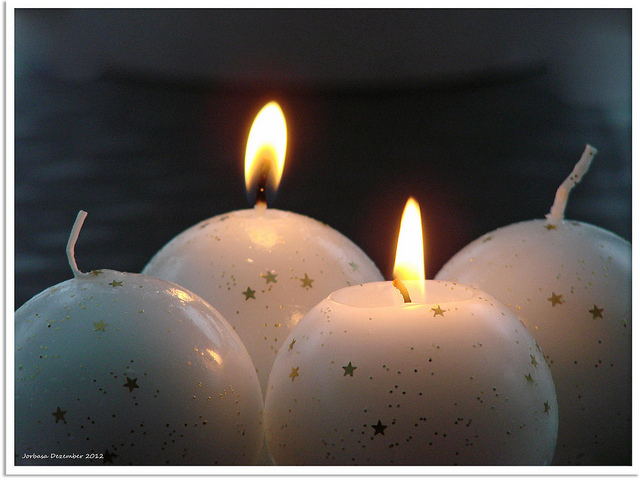“All flesh shall see the salvation of God.” Well, that depends.
The criteria we set in place for a claim like this makes for a rather large list. And the list has grown significantly in the past weeks and months. If we ever need a reminder of the promise of the incarnation, now is it. According to the incarnation, if we take it seriously, there can be no selectivity when it comes to for whom God comes. This is the promise of Advent — that those we might write off on our way to the manger matter to God. In becoming human, God committed God’s self to all of humanity. All flesh, friends. All flesh. There’s one possible sermon on this passage from Luke. Our times and circumstances call for a sermon such as this. And this may very well be the sermon you need to preach this week.
But another possibility for preaching this week might ask, what does it mean to “see” salvation? An interesting choice of the senses, isn’t it? While we tend to locate our language around salvation as concept, Isaiah, John the Baptist, and Jesus, recast the meaning of salvation as an experience of the senses. Salvation, therefore, is not a religious concept best relegated to life after death, a confession of creed so as somehow to categorize faith, or an idea that proves to guarantee our future. It seems that salvation can be seen — and that is a kind of Advent that can make a difference.
Dear Working Preachers, I think this is something we all need to experience, both the people to whom we preach and us preachers — that Advent can actually be seen. Tasted. Smelled. Felt. Heard. The doing of Advent is not the same as experiencing it. This can be an invitation to enter into the Advent we really all want. An Advent that invites the deepest of feelings amidst the restlessness of the forwardness of time. An Advent that is not just about all the doing but also about all of the needed being. It might very well be a choice to exist in such a way that insists on or even assumes straight paths, valleys filled, and rough ways smoothed. Preparing the way of the Lord does not have to be that which requires an endless “to do” list.
I don’t know about you, but this is really hard for me. My lists are long right now. That which needs to be accomplished between now and December 25 leaves little room for an awareness of how I am experiencing these days of expectation. But, if I am honest, this has always been difficult for me. I find myself always looking to the next task, the next item on my list to cross off, the next whatever. It has always been challenging to be in the moment, to feel what is now and let now just be. Anybody else out there know what I mean? Why is that? Well, I certainly have not eschewed any efforts to figure it out — various and sundry personality tests, yoga, meditation, you name it. Yet, being persists in alluding me. Choosing being over doing continues to be that which demands a daily decision. And most certainly, the consciousness of seeing salvation continues to evade me.
So I think this may very well be the necessity of Advent. Being. Because being is inherent to incarnation. It’s almost as if Advent is the necessary time to prepare us for the being of God. Because God incarnate is not a concept but a commitment to the human experience in all of its fullness — every day, every minute, every second.
Advent should not be something to hurry along. Our endless attempts to accomplish tasks seem only to be that which seeks to secure that time might move forward, and why do we want that? What is our hurry? That might be what is at stake. Our hurriedness. Our lack of patience. Our desire to move along that which should take more time than we think. Going to the next step has to take time. But, as Advent helps us see, the time is worth it.
Advent suggests that God seems to want us to wait. God seems to expect expectation. God seems to know that the immediacy of desire is not the same as experiencing the fullness of life in the moment.
All flesh will see the salvation of God. Wait for it. Live in the moment that anticipates such a promise. Be in the moment that believes such promise is possible. The point is, knowing the future makes the fullness of the present possible. That is the true essence of Advent.
Karoline

